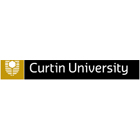Bachelor of Medicine/Bachelor of Surgery
Bachelor of Medicine/Bachelor of Surgery
This course can lead to many careers in the medical profession. Your studies will focus on biomedical sciences and clinical sciences, as well as healthcare in settings such as primary care, hospitals and aged care. You will also study Indigenous health, population health and professional development concepts. In your first…
Categories
COURSE DESCRIPTION
This course can lead to many careers in the medical profession. Your studies will focus on biomedical sciences and clinical sciences, as well as healthcare in settings such as primary care, hospitals and aged care. You will also study Indigenous health, population health and professional development concepts.
In your first year, you’ll complete discipline-based subjects in medicine and begin developing skills in clinical communication. You will also develop skills in interprofessional practice by learning alongside other health sciences students.
Your second and third years will be devoted to a more intensive study of medical knowledge that focuses on the structure and function of the human body in health and disease.
In your fourth year, you’ll transition from the Curtin campus into a clinical setting, and work with people from all age groups under clinical supervision in hospital and community settings, including in rural and remote locations.
Your final year will be in clinical settings where you will work as a member of a healthcare team in preparation for your internship once you graduate.
Professional recognition
This course is accredited by the Australian Medical Council.
Career information
Careers
- Medical practitioner
Industries
- Aged care
- Consultancy
- Community health
- General practice
- Management
- Mental health
- Pathology
- Research
- Rural health
What you’ll learn
Apply an understanding of normal development, disorders and diseases, diagnostic and therapeutic procedures, and scientific methods to the practice of medicine
Interpret clinical information to assess health status, formulate and explain a diagnosis, priorities treatment based on effectiveness, provide management in consultation with the patient and careers, and reflect critically on health outcomes
Locate, critically evaluate and interpret evidence to inform clinical decision-making and clinical practice, and to improve the quality of health care, and health care systems
Communicate in different ways to: maintain interpersonal doctor/patient and inter-professional team relationships; ensure shared decision making in health outcomes; engage in health advocacy; and, advance health outcomes
Use appropriate technologies effectively in clinical practice and recognize the role of technology in advancing scientific knowledge and evidence-based practice
Discuss knowledge with colleagues, reflect on clinical practice, and plan on-going personal and professional development needs for self and others
Apply relevant internationally recognized evidence-based standards and practices in medicine, and evaluate the impact of global health on health and health care delivery in Australia
Demonstrate cultural competence with individuals, families and communities, particularly Aboriginal and Torres Strait Islander peoples and account for the impact of culture on health and illness, including how one’s own beliefs, attitudes and practices can influence interactions with patients, careers and the wider community
Practice medicine in a professional and safe manner by: adhering to legal responsibilities and ethical principles; working effectively in health care teams; showing leadership; demonstrating a commitment to easing pain and suffering; promoting health and advocating for patients and their families
REQUIREMENTS
Students from different countries should have qualifications equivalent to Australian Year 12 and a scaled mark of at least 50 in English, Literature, or English as an Additional Language or Dialect.
English Language Requirements:
IELTS (International English Language Testing System) – Listening, Reading, Writing, and Speaking – 7.0; Overall band score 7.0
EDUCATIONAL INSTITUTION
Curtin University is Western Australia’s largest and most culturally diverse university with Australia’s third largest international student population. Around 60,000 students from more than 130 countries study a Curtin degree, at locations including Perth, Margaret River, Kalgoorlie, Sydney, Malaysia and Singapore. Our cultural diversity adds a rich and valuable dimension to the campus atmosphere, preparing all graduates to live and work effectively in an increasingly global environment. We offer a range of industry-aligned undergraduate and postgraduate courses in business, humanities, health, engineering and related sciences. We also have a long-standing focus on Aboriginal and Torres Strait Islander education and culture, supported by our Centre for Aboriginal Studies.Curtin is widely recognised for its practical research that is focused on solving timely, real-world problems. In recent years our research activity has grown significantly, driving our rapid rise up the international university rankings.As a university that never settles, we will continue to develop existing partnerships and establish new ones in areas relevant to our research and teaching.




